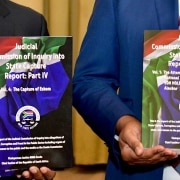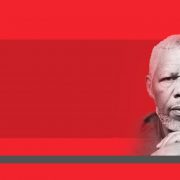|
Getting your Trinity Audio player ready...
|
Corruption Watch has made submissions on the Traditional and Khoi-San Leadership Bill. Our main focus was on issues of good governance and the representation of community interests within traditional leadership structures.
Our concerns related to the effect of the bill’s provisions on the ability of communities to voice their concerns within traditional leadership structures and participate meaningfully in decision making processes which affect them. This applies particularly to mining activities which may affect their security of tenure, their social and natural environment and other socio-economic conditions.
We referred to our research on the vulnerabilities in the mining application process, conducted during 2016 and 2017. Among others, lack of consultation with mining affected communities was highlighted as one of the key vulnerabilities in the mining application process, along with abuse of power by traditional authorities or their representatives.
It is within this context that we framed our submissions on the bill. We submitted that the above-mentioned issues of good governance and community representation be more carefully considered and taken into account when establishing and providing for the composition and governance of traditional leadership structures, as well as the development of effective dispute resolution mechanisms.
Because of the significant role played by traditional leaders, we acknowledged the importance of the current legislative amendments in limiting the scope for traditional leaders and authorities to abuse their power, and ensuring that communities participate meaningfully in decisions taken on their behalf.
We submitted that the bill should be amended to reflect sound legislative choices which take into account the impact of the abuse of power by traditional leaders and which therefore aim to prevent and address the abuse of traditional leadership at the expense of communities and their interests.
Submissions were made under the following headings:
- The governance and composition of traditional councils;
- Inadequate measures to ensure effective community consultation;
- Inadequate financial accountability mechanisms; and
- Inadequate dispute resolution mechanisms.
Download our full submissions.








